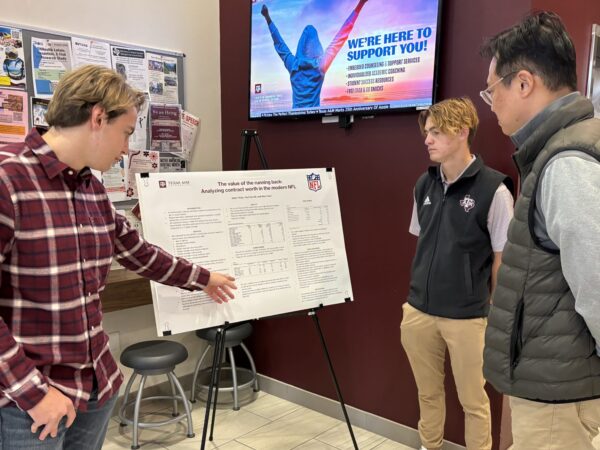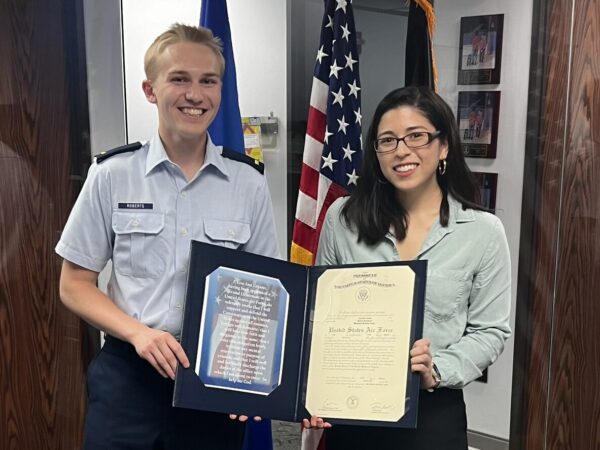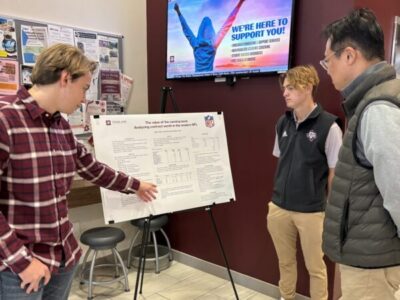
Education A Top Priority During Special Session
Today marks the start of the Texas Special Session where more than 20 items are on the agenda. The agenda items showcase many of the challenges Texas schools face including legislation on statewide teacher increases, proposals for school administrators regarding teacher hiring and retention, the creation of a commission aimed at fixing the school finance system, and a revamped bill over school vouchers for special education students.
Dr. Mario Torres has a 17-year history in education legal research and serves as Interim Department Head and Professor in the Department Educational Administration and Human Resource Development (EAHR).
“Some items are more polarizing than others, but matters such as increasing teacher pay increase and retention, may deliver the governor some much needed political currency with interest groups,” Dr. Torres said. “This is all to say that I do believe there are compelling reasons to alter the teacher compensation model.”
TEACHER PAY AND RETENTION
The complexities throughout teacher retention can get overlooked, according to Dr. Torres. Various elements within a teacher’s daily workload significantly impact lower retention numbers.
“Many school districts often have to approach recruitment and retention more strategically, particularly for reasons related to compensation, geography, or demographics,” he said. “Incentivizing working in critical needs areas might help, but I do think it’s important to explore the corollary to retention as well, and that is enabling schools to act more efficiently on poor performing teachers.”
The proposed $1,000 teacher pay increase is intended to assist in teacher compensation, however Dr. Torres said that it could do the opposite. He said the current proposal suggests that school districts may be required to fund the pay increase without the assurance that every teacher will receive the $1,000 raise.
“The language in the final proposal will be telling. While some studies dispute the impact of teacher pay on student growth, the reality is that teachers are doing more with respect to expressed duties and ancillary duties such as evening parent conferences often leaving teachers to purchase classroom supplies at their own expense,” he said.
UNDERSTANDING SCHOOL VOUCHERS
School vouchers continue to be a heavily divisive topic in Texas and nationwide. After Governor Greg Abbott’s decision to revive a house bill that was killed back in May, Texas remains at a standstill.
“Vouchers essentially function as checks written to parents or guardians which award a reasonable level of freedom to invest those funds as they choose. In most cases, parents are permitted to reinvest in the public education system, or invest elsewhere such as a private, sectarian-based education, or perhaps not invest it at all, and retain the money in a home-school arrangement, yet provisions for the latter vary considerably,” he said.
In the past, school vouchers were pitched to all parents as an option for their children. Proponents of the bill hold a longstanding belief that parents should have the liberty to choose and decide on their children’s education — whether public, charter, or private. Opponents of the bill however, have argued that school vouchers directly undermine public schools in some ways including support and funding loss within school systems.
“This special education voucher bill reflects a very subtle ethical dilemma in my opinion,” Dr. Torres said. “On one hand, I believe there’s a critical need to meet the needs of these children who may not have access to proper services. On the other hand, when policies begin to chip away at the core functions of public school systems, then it begins to undermine its intended purposes, one being preparing students to be engaged and active citizens.”
Texas has a set of guidelines and regulations in place for its special-needs services. Yet, access to these services has dipped over the past 10 years with Texas falling under the national average, according to studies.
“Voucher programs targeting special needs fall into what I consider a politically low-risk, high-benefit yield category. It is difficult to argue against voucher programs conferring benefits to parents or guardians who care for children with profound disabilities or disabilities the local public school system is unable to reasonably serve,” he said.
Voucher programs also come with potentially severe setbacks — many of which directly affect public school systems from the ground up. Vouchers can also become problematic for school systems because they can lead to enclaves on special interests, according to Dr. Torres.
“Teacher interest groups obviously perceive vouchers as a threat due to greater competition for increasingly scarce taxpayer funding,” he said. “Cuts to funding lead to reductions in force, access to quality faculty and resources. All the while, maintenance and operation of the schools remain the same, which further complicates the ability of schools to make ends meet.”
Governor Abbott and other Texas lawmakers will be allotted only 30 days for the ambitious special session.
Written by Justin Ikpo (cehdcomm@tamu.edu)
For media inquiries, contact Ashley Green.














